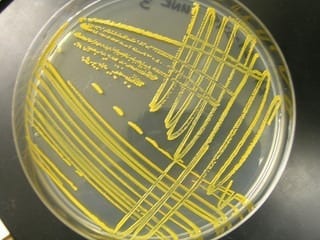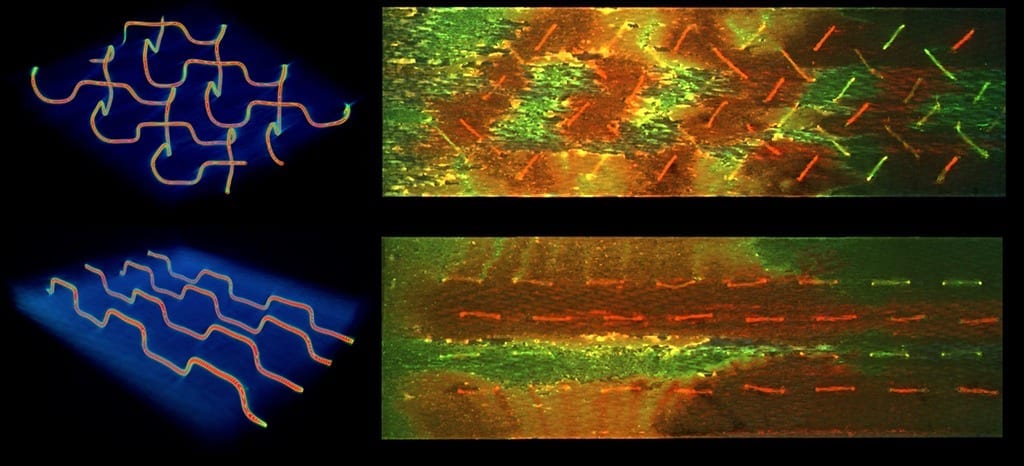
“If there is a chemical you want to break down, there is probably a microbe that can do it. If there is a compound you wish to synthesize, a microbe can probably help”
Microbes can be highly efficient, versatile and sophisticated manufacturing tools, and have the potential to form the basis of a vibrant economic sector. In order to take full advantage of the opportunity microbial-based industry can offer, though, educators need to rethink how future microbiologists are trained, according to a report by the American Academy of Microbiology.
“Industrial microbiology is experiencing a Renaissance; microorganisms make products ranging from the tightly regulated pharmaceuticals industry to large-scale production of commodity chemicals and biofuels. Educating and training the next generation of employees for these rapidly expanding industries is critically important to their survival,” says Joy Doran-Peterson of the University of Georgia who chaired the steering committee that produced the report.
For thousands of years humans have harnessed the power of microbes to make products such as bread, cheese, beer and wine. In the early 20th century scientists discovered how to use mold to produce antibiotics. It has only been in the past few decades, with the advent of DNA-based technologies, that our understanding of the vast diversity of microbial capabilities has exploded.
“If there is a chemical you want to break down, there is probably a microbe that can do it. If there is a compound you wish to synthesize, a microbe can probably help,” says the report, entitled Microbe-Powered Jobs: How Microbiologists Can Help Build the Bioeconomy. The report provides a litany of examples of potential biological products including bioenergy, biofuels, environmentally friendly industrial chemicals, and bioenzymes (the production of which already fuels a nearly $4 billion market).
To take full advantage of the potential the bioeconomy offers, academia needs to re-think and take a broader approach to teaching microbiology at the undergraduate level. According to the report, the future growth of a microbial-based industry sector depends on two crucial elements: expansion of the fundamental understanding of microbiology and translation of that understanding into viable products.
Current microbiology education primarily trains scientists with an eye toward academic research, which is what is needed to continue the expansion of knowledge. Most undergraduates that take microbiology, though, have an eye on a medical career, so many undergraduate microbiology curricula focus on the biomedical aspects of microbiology, according to the report.
“One can imagine that instead of the current situation where pre-medicine is virtually the only undergraduate program with a microbiology component, there could be a series of majors with microbiology at their cores,” says the report.
One specific major, which the report outlines, could be an industrial microbiology track, with a focus towards translation. Not only would it emphasize microbiology, but it would also include quantitative skills important for success in industry. This type of curriculum could also be made available to engineering students in the form of a bioengineering track.
In addition to the traditional degree programs, the report also recommends other formats be used to teach specialized skills or offer intensive introductions to new fields of study.
The Latest on: Bioeconomy
[google_news title=”” keyword=”Bioeconomy” num_posts=”10″ blurb_length=”0″ show_thumb=”left”]
via Google News
The Latest on: Bioeconomy
- IBSD celebrates Foundation Dayon April 26, 2024 at 1:00 pm
The Institute of Bioresources and Sustainable Development (IBSD) celebrated its 23rd Foundation Day with a seminar titled ‘Bioeconomy from Bioresources: Promoting Bioentrepreneurship in NER for Viksit ...
- How can relational and decolonial approaches inform the EU Bioeconomy?on April 25, 2024 at 4:24 am
The EU defines bioeconomy in a broad manner to include: all sectors and systems that rely on biological “resources” (animals, plants, micro-organisms, and derived biomass, including organic waste), ...
- How sustainable practices protect Asia’s natural resources and help drive the bioeconomyon April 24, 2024 at 9:01 am
RGE, a resources and manufacturing group with its headquarters in Singapore, is investing in conservation and ecosystem restoration as part of its commitment to develop clean, renewable and low-waste ...
- “Our urine is worth its weight in gold,” says researcheron April 22, 2024 at 7:30 pm
Water, milk, and soft drinks find their way through our bodies and into the toilet bowl. This makes researchers at the Norwegian Institute of Bioeconomy Research (NIBIO) shake their heads. “Our urine ...
- Q&A: Toward a Tennessee circular bioeconomyon April 18, 2024 at 2:29 am
Science X is a network of high quality websites with most complete and comprehensive daily coverage of the full sweep of science, technology, and medicine news ...
- Tapping into the bioeconomy potential of grasson April 17, 2024 at 5:40 pm
Growing grass is one of Ireland’s natural competitive advantages which is now set to be a key ingredient in Ireland's emerging biomethane and bioeconomy sectors, writes Stephen Robb.
- The Bioeconomy will not save the Amazonon April 9, 2024 at 6:56 am
The emerging consensus seems to be that the best way to protect the Amazon is to cultivate a “bioeconomy.” Over the past few years, this idea has been endorsed by conservationists and various ...
- The Bioeconomy Will Not Save the Amazonon April 3, 2024 at 5:00 pm
The emerging consensus among conservationists and environmental organizations is that the best way to save the Amazon rainforest is to cultivate a “bioeconomy” based on regenerative agriculture and ...
- Biological Threats in the Age of the Bioeconomy – A Workshop Serieson March 25, 2024 at 7:13 pm
The National Academies of Sciences, Engineering, and Medicine are private, nonprofit institutions that provide expert advice on some of the most pressing challenges facing the nation and world. Our ...
- Sustainable biomass production capacity could triple US bioeconomy, report findson March 18, 2024 at 1:51 pm
Farmers and bioeconomy stakeholders can use the report as a first step to identify biomass production opportunities. Hardy perennial crops such as poplar trees and switchgrass need less water and ...
via Bing News









